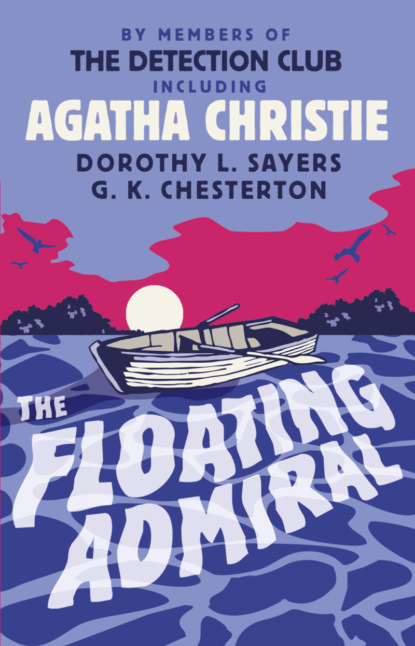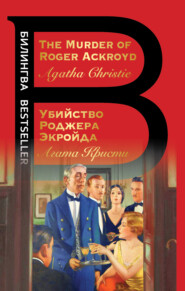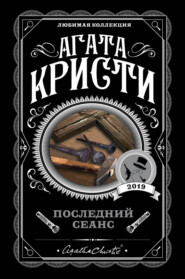По всем вопросам обращайтесь на: info@litportal.ru
(©) 2003-2024.
✖
The Floating Admiral
Автор
Год написания книги
2019
Настройки чтения
Размер шрифта
Высота строк
Поля
“The dress and shoes and stockings were.”
“Didn’t you look for them?”
“Of course I did. They weren’t anywhere.”
“So that’s why you think she took them with her?”
“Well, she must have. Where else could they be?”
Inspector Rudge looked thoughtfully at the girl, then nodded his head and drew out the notebook which had not previously appeared at this interview.
“I see, Jennie; thank you. I won’t keep you longer now. Don’t tell anyone else about that dress and things, but have a good hunt and, if you find them, let me know.”
When the girl had gone, Inspector Rudge sat back in his chair and pondered what he had just heard. The maid’s judgment as to the relations existing between Elma Fitzgerald and her uncle, and again between her and her fiancé, might be at fault; the question of Miss Fitzgerald’s spasmodic attention to her appearance was at present beyond him; but surely the disappearance of the dress and shoes which she had been wearing at the time of the tragedy—or at any rate on the evening of the tragedy—was significant? Could she be in some way connected with her uncle’s death? She had appeared neither surprised nor distressed when she heard of it, but if she had been guilty—or even cognisant of it—would she not have feigned both? However, it was too early yet to indulge in surmise—let alone theories; there were many facts to be collected first.
To begin with, the newspaper. How had it come into the dead man’s pocket? Rudge happened to know that the late London edition of the Evening Gazette did not reach Whynmouth till 8.50—the express by which, incidentally, Arthur Holland had arrived. No doubt a copy would be delivered at Rundel Croft, but that could not be till about 9 p.m. and the Admiral had left the house at 7.15 for his dinner at the Vicarage. Unless he had got a copy from the Vicarage, that seemed to imply that Penistone had returned to Rundel Croft after leaving the Vicarage at 10 p.m.—but then why was the paper in his overcoat pocket? Had he gone back to fetch it in order to read it out of doors—surely that was inconceivable? Or had he, on his way back to Rundel Croft, met someone who gave him the paper—not the delivery boy, it was too late for that. Someone, perhaps, who had brought the paper out with him—had brought it, perhaps, from London—Arthur Holland, for instance? Holland, who had spent the evening by the seashore and then gone early to bed—by himself. But here again was surmise—facts were what he wanted. Rudge rang the bell.
“Emery, did your master take in the late London Evening Gazette?”
“Yes, sir. Tolwhistle’s boy brings it out of an evening—gets here about nine.”
“Did it get here last night?”
“Yes, sir,” said Emery, a faint look of surprise on his stodgy face.
“Where did you put it?”
“In the hall, sir.”
“Is it still there?”
“I couldn’t say.”
“Go and have a look, and if it’s not there, find out whether it’s been tidied away.”
Looking more surprised than ever, Emery slouched out of the door. Rudge thought it would probably be ten minutes at least before the tortoise-like butler returned, so he reached for the telephone which stood upon the writing-table and put a call through to Tolwhistle’s, the Whynmouth stationer. The number was engaged, and while he waited Rudge let his mind drift back to the missing dress. He remembered that when he sent Emery off to ask Miss Fitzgerald to come and see him it was ten minutes before the butler returned and then it was with the information that Miss Fitzgerald would be down in a quarter of an hour. There was, in fact, an interval of twenty-five minutes between his despatching his message and the arrival of Miss Fitzgerald. Did her appearance—slovenly in the extreme—justify or explain such a long delay? Was it possible that the mysterious “niece” had spent part of the time in hiding the clothes she had … ?
The telephone bell trilled.
“Tolwhistle’s? I want to speak to Mr. Tolwhistle, please. That you, Mr. Tolwhistle? Inspector Rudge here. I want some information; quite confidential. Sounds trivial, but isn’t. Do you supply the Reverend Mount, Vicar of Lingham, with newspapers? You do. Does he have a late London Evening Gazette? Left it off at the end of last year? Said what? Oh, spoilt the morning’s—yes, I see. Any chance of anyone else supplying him? No, you’d have heard of it, of course. Thank you, Mr. Tolwhistle. Keep my questions to yourself. I’ll explain them some day.”
That settled the question of whether the Admiral had got the paper from the Vicarage; there remained the two alternatives of his having come back to the house, fetched his own paper, and gone out again, or having met someone outside who had for some reason given him the paper.
Impatient at the long absence of Emery, Rudge went to look for him. There was no sign of the butler, but Police Constable Hempstead was standing in the hall.
“I came to report that the body has been taken to the undertaker’s, sir. I formally handed it over and obtained a receipt.”
The Inspector blinked. Here was efficiency carried to full stretch.
“Right,” he said. “This house isn’t in your district, I think you said?”
“No, sir, but the corpse was found in it.”
“And you think it your duty to see that its presence is accounted for?”
“That’s for you to say, sir.”
Rudge grinned. He knew that this keen-eyed young constable was itching to be “in” the investigation.
“All right,” he said. “Here’s a job for you; go down to the boat-house and find out from Sergeant Appleton whether he’s found anything significant. No. I’ll come with you. If there’s anything, I shall want to see it for myself and we mustn’t keep our detective-sergeant there all day.”
And so, forgetting all about the newspaper, Inspector Rudge accompanied P.C. Hempstead across the park to the boat-house. As he went, he asked his subordinate whether anything particular had struck him about the case.
“One or two things, sir. In the first place, the body’s clothes were almost dry—the back quite dry. But there was a heavy dew last night. If he had been lying about in grass, or even in the boat, since midnight (Doctor Grice fixed the time of death, you remember, sir, as before midnight) wouldn’t the clothes have been wet?”
Inspector Rudge eyed his companion with interest.
“From which you infer … ?” he asked.
“That the Admiral was killed indoors and kept indoors—or at any rate under cover—for some time after he was killed.”
The Inspector was silent for so long that Hempstead began to fear that he had exceeded his duty. Just as they reached the boat-house, however, Rudge said:
“That’s a neat point; we’ll talk about it later. Ah, Appleton, sorry to keep you waiting. Found anything?”
Detective-Sergeant Appleton was a square, solemn-looking man, valuable as a detective rather for his persistence in following up small clues than for any brilliance in deducing theories from them.
“Only two suggestive points, sir. This boat’s very clean and rather wet inside—looks as if it might have been swabbed out recently. That’s one; the other is that its bow’s facing inwards. The Vicar’s sons tell me that the Admiral always used to go in stern first, so as to be facing the right way when the boat went out again.”
“Ah, Navy trick, eh? That’s worth noting. Nothing else? No blood, signs of struggle, footmarks, finger-prints?”
“No to the first two, sir. There are one or two good footmarks I’ve covered over with boards and there look to be plenty of finger-prints all over the boat and sculls.”
“We’ll have to examine them later. Any theories, Appleton?”
“None, sir.”
Inspector Rudge sat down on the bank and motioned to his subordinates to join him.
“Light up,” he said, pulling a pipe out of his pocket. “Think better smoking, and we must think now. The Vicar’s hat, in the first place; why was it in the boat?”
“Put there by the guilty party to throw suspicion on the Vicar,” hazarded Sergeant Appleton.
“Improve on that, Hempstead?”
“The other alternative is that the Vicar left it there himself, sir, and forgot he had.”
“He stated positively that he had his hat on when he saw the Admiral off after dinner last night and that he left it on the seat in the summer-house.”

















